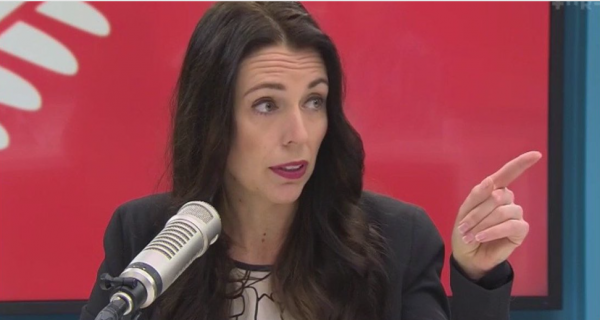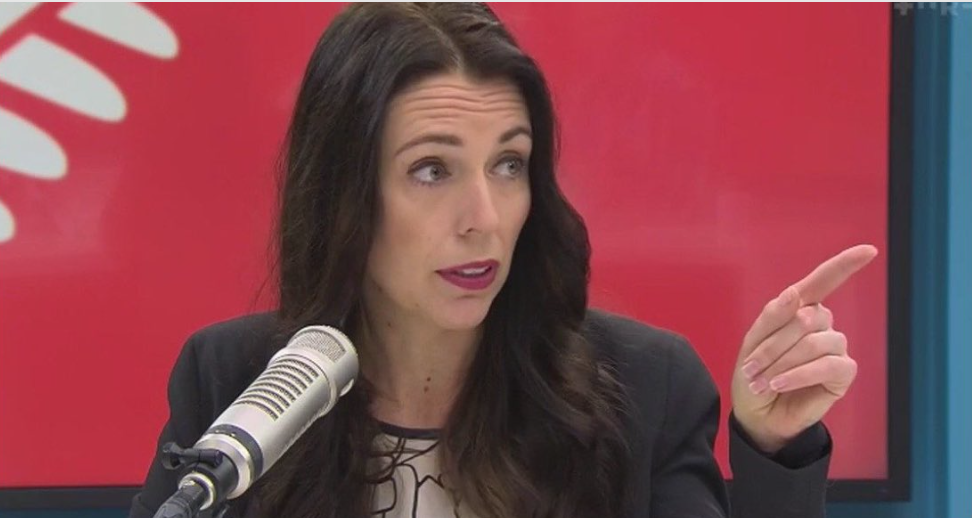
Let me start with the glass that’s half full. At last a New Zealand government has recognised that, to quote Jacinda Ardern on Radio NZ, the system of investor-state dispute settlement in the TPPA is ‘a dog’.
Investor-state dispute settlement (ISDS) has become a standard demand of transnational corporations in so-called trade agreements. They allow foreign investors to enforce special protections that are not available to local firms, using private partisan offshore tribunals to demand massive compensation when governments regulate in the national interest. They are not just after the money. More often they aim to have a chilling effect on governments, as we saw with investment disputes by the tobacco industry over plain packaging of cigarettes.
In 2015 New Zealand First introduced the Fighting Foreign Corporate Control Bill to exclude ISDS from all new agreements. That mirrored similar moves in Australia and the US. National prevented it even going to select committee.
That move was part of a much bigger trend. Governments around the world are turning their back on ISDS, cancelling stand-alone bilateral investment treaties (BITS) and refusing to accept ISDS in new agreements. South Africa has replaced its BITS with a domestic law that treats foreign and local investors the same, with investor rights made subject to the post-apartheid constitution, and cases to be heard in the national courts.
Brazil has a new model investment agreement that has no ISDS, emphasises mediation, and excludes some of the most toxic investment protections. India’s model BIT tries to balance social and economic goals and gives preference to domestic courts.
The trend is not just in the global South. There is no state-state or investor-state enforcement in the investment protocol to the CER agreement between Australia and NZ. Australia said no ISDS in its FTA with the US and initially opposed it in the TPPA. The current Liberal government said it would take a ‘case-by-case’ approach. ISDS was excluded from Australia’s 2015 agreement with Japan. But South Korea insisted on it in the FTA with Australia, and with New Zealand.
In Europe, the backlash against ISDS has seen the European Union run a rescue mission by promoting a more formalised quasi-court system. That retains many of the same flaws of ISDS and enforces the same biased pro-investor rules. Our new government is already making favourable noises about this in the pending EU FTA negotiations.
Most recently, the Trump administration has turned its back on ISDS, proposing that governments should be able to opt out from ISDS in the current renegotiation of the North American Free Trade Agreement (NAFTA). The US Trade Representative Robert Lighthizer was scathing of US corporations for expecting the state to protect it from the risks of doing business:
It’s always odd to me when the business people come around and say ‘oh, we just want our investments protected.’ I thought, ‘well so do I.’ I mean don’t we all? I would love to have my investments guaranteed. But unfortunately it doesn’t work that way in the market. It does work that way when you’re talking about special interests…. Does anybody think it’s protectionist to say you buy your own political risk insurance? I mean I can show you what protectionism is if that’s…. But it certainly isn’t this.
That’s the good news and why the Labour-led government should refuse to accept ISDS in any agreement, full stop.
However, the glass is also half empty. There is no doubt the new government has been working hard to achieve some protection for NZ from ISDS in the TPPA. But is asking the other parties for side-letters, similar to the one signed by Australia and NZ, saying they won’t let their investors use the TPPA’s investor-enforcement mechanism against us a solution?
There are several major pitfalls in this approach.
First, the other countries have to agree. If they don’t, we are stuck with it and promises not to have ISDS in future agreements becomes largely symbolic. Foreign investors are notorious for incorporating themselves in countries that give them access to these mechanisms.
Second, a side-letter means the rest of the original agreement remains intact – despite the position of Labour, NZ First and the Greens that they would not support its ratification.
Third, simply removing ISDS would not alter the pro-investor rules in the TPPA, which the government is required to implement in good faith, and which the other countries can still enforce.
Fourth, the ISDS mechanism would remain in the agreement and apply to all the other countries, buttressing its legitimacy against the turning tide.
The only consistent and principled approach is for the new government to oppose the inclusion of investment in any ‘trade’ negotiation, including the TPPA-11, and to instruct negotiators to build a critical mass to achieve that.






Thanks so much for this information Jane. Without this international context, which most kiwi new media talking heads seem blissfully unaware of, it seems like those opposing the ISDS scheme are the ones in the minority.
“South Africa has replaced its BITS with a domestic law that treats foreign and local investors the same, with investor rights made subject to the post-apartheid constitution, and cases to be heard in the national courts.”
There you go Jacinda, let’s go down this road. You can always blame pressure from NZ First and the Greens, if you don’t want to take the credit yourself.
‘instruct negotiators to build a critical mass to achieve that.’
I have faith they could and should do that.
If Labour doesn’t pull back from the TPP they could lose support to NZ First or the Greens. Just saying.
Just saying – they may gain support from the National and ACT enterprisers who are confident they’d always be on the winning side.
Remember always that the best for the country and its citizens may not be best for the comfort and affluence of its politicians. If there are dollars and status and power in the mix – the ‘good of the country’ is generally going to be the long-term loser.
Great material . Thanks Jane .
ISDS sure ain’t no cute FTA puppy , its a psycho dog with rabies that needs to be put down.
Side -letters on ISDS or an ISDS freeze (till the US comes back) sound ineffective.
It is good to see international pressure to construct ISDS free agreements getting real traction and would make perfect sense for you to be part of the negotiation team , Jacinda and David will need all the help they can get .
Yes Jane,
Put this ‘National TPPA dog’ down as it has ‘rabies’.
National MP’s display a kind of angry bark in parliament.
Rabies is a kind of viral infection that affects the brain after a bite from an infected animal.
Most National MP’s are definately affected like this now I would say so to adviod any futher spread of this to any Labour Coalition MP’s put this dog down.
Good call there.
https://en.wikipedia.org/wiki/Rabies
What is really important to know, that is, who is doing the negotiating for New Zealand, and what instructions have they been given from Wellington?
That may tell us where things will go.
And who is advising Grant Robertson, David Parker and Jacinda, that is equally important.
ISDS may be raised at the upcoming meeting, but given the quality of the just mentioned, it may be given only so much weight when they make a final decision.
Never underestimate the business sector, and most of them want Labour and its support parties to sign the TPPA.
We will soon know, it is a bit late to organise protests only a couple of days out from a major meeting in Vietnam or Malaysia.
>> Never underestimate the business sector, and most of them want Labour and its support parties to sign the TPPA. <<
The TPP has been radicalising for a lot of kiwi tech businesses. Initially, they assumed the TPP was overall a good thing, and they were only concerned about the US using the agreement to push their "intellectual property" ideology further into other countries' laws on copyright, patents, and so on. But once they started understanding the way the TPP affected their own business, it became a lot easier to show them that these Corporate Rights Treaties do the same sorts of things in every area of business.
My point is that just as a lot of business people assume National governments are good for "the economy" (despite copious evidence to the contrary), they also casually assume that "trade" is good, and therefore "trade agreements" must be good, regardless of their actual content. But we can change that. We need to engage with kiwi business people in good faith (particularly farmers), show them the parts of the TPP text that affect their area of business, and explain how the TPP will harm their business, to the benefit of their overseas competitors.
Once a few influential business leaders start publicly questioning the value of continuing with the zombie TPP, it will lose what little public support it has left. Then the government can instruct the NZ negotiators to can it (or at least insist on a complete re-negotiation), without much risk of political blowback.
I was a bit heartened today, despite of my doubts about Jacinda, that I read or heard on MSM, that they plan to ‘renegotiate’ the TPP. So if that is the case, we may have some humble reason to be hopeful. And as Jacinda has ‘surprised’ a few of us, and of the opposition, including one Mr Hooton (quote on RNZ and Nine to Noon and Political Commentators on Monday), we may be in for a further surprise, so I hope, that may see things come right after all. Let us hope and pray for now.
This horrid thing is still sticking… oh for the day you write Jane ‘ it’s dead and buried’!
Jacinda talk with the Chileans and per haps get common ground on it/!
https://www.youtube.com/watch?v=IrMIA1_F5io
https://www.youtube.com/watch?v=SsXbsiq7V3I
No and no, we believe in more than this:
https://www.youtube.com/watch?v=i4pITpFL5Ho
I heard and read, so I TRUST jacinda this time believe me or not
If that it is so for it it deserversesbtonbe killed
https://www.youtube.com/watch?v=i4pITpFL5Ho
One news item said Jacinda is expected to sign TPPA,sure she said ISCD wont be agreed to,but that’s not the only thing wrong with TPPA.
The agreement was written by big business for big business and they wont give up control that easily.
Why does NZ have to be in the TPPA,Labour has only been in charge a week and MP Clark of Dunedin wants compulsory child vaccinations ,Jacinda decided maybe to sign TPPA, both subjects contraversial, what next is around the corner?Seems like Labour is bound on doing things
the public is not keen on.
John Key had a similar style,do the Greens and Winston not get a say in anything,! or are all decided by Jacinda.?
Comments are closed.